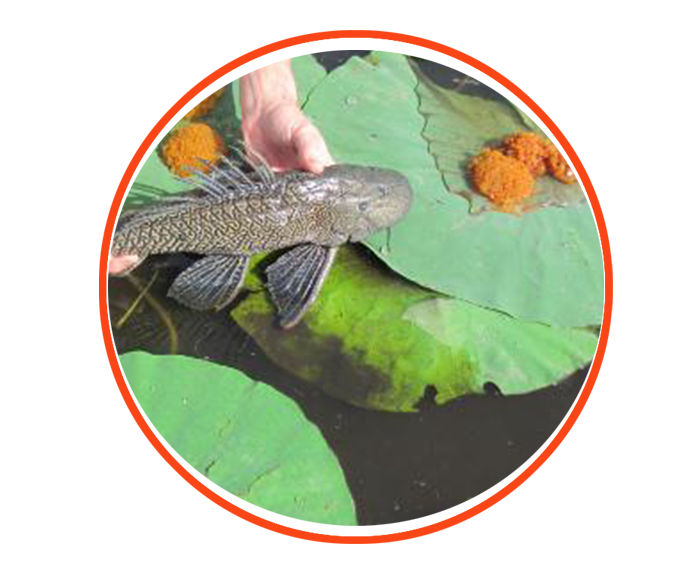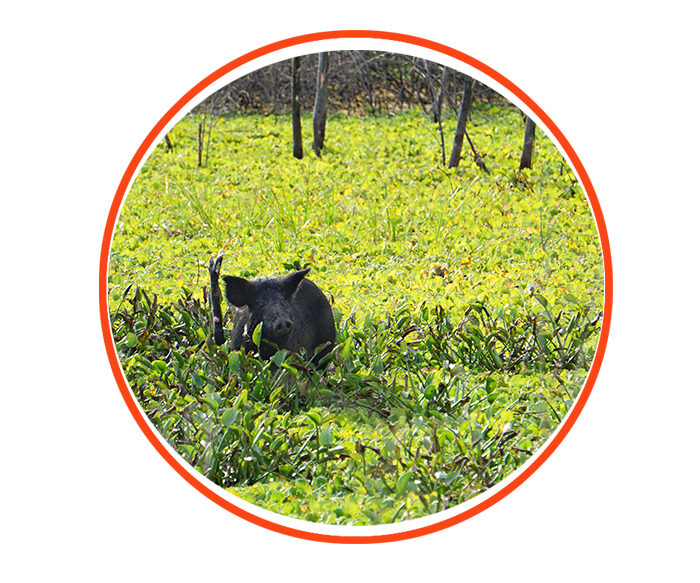Invasive Vertebrates
This section includes programs and research related to invasive mammals, reptiles and amphibians, fish, and birds.

Non-native species research and extension. Non-native species are important to the aquaculture and aquarium industries. Some non-natives support important recreational and commercial fisheries and some are used for aquatic weed control. Unfortunately, some non-native fishes and other aquatic animals have escaped from culture, been released by hobbyists, or have entered the environment through other pathways. Of this group of introduced species, some establish populations, some spread, and a few can become problematic for Florida’s environment, economy, and human health/quality of life.

Weed Science and Rangeland Wildlife and Ecosystem programs. Mission: Provide science-based information to address the challenges affecting owners and managers of grazing lands.